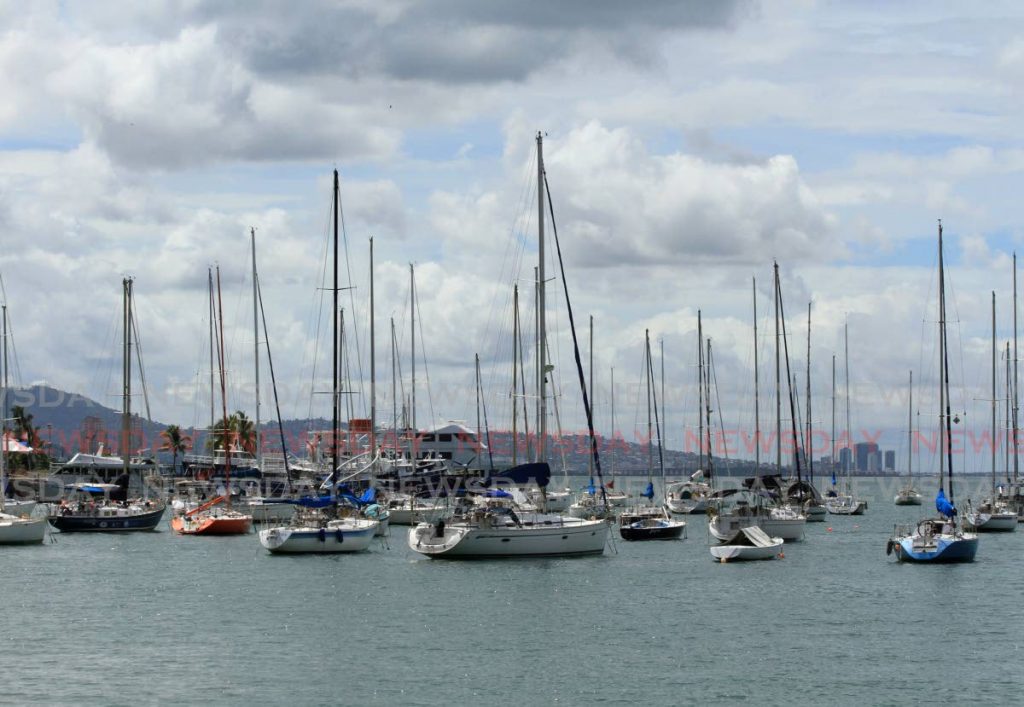We must save the yachting industry

KIRAN MATHUR MOHAMMED
kmmpub@gmail.com
Our harbours can draw boats and foreign exchange as we emerge from lockdown. But only if we cut the lines holding the yachting industry back.
Even before covid19, a graph of industry revenue looked a bit like the progress of the Titanic. Economist Indera Sagewan points out that revenues plunged from US$30 million in 2000 to less than US$12 million in 2017. By 2017, just 660 vessels were docked: a 74 per cent fall from 2001.
Covid19, however, has turned an already difficult situation into a dire one. With vessels banned, most have gone to shelter in Grenada – just in time for hurricane season. Meanwhile, even larger industry players are on the brink.
I interviewed Peter Peake of Peake Yacht Services.
“Now we have to send home workers. There is no work. We managed to pay everyone during the lockdown but now that we can come out to work; we (have) nothing to work on. It’s destroying the industry. I now have my employees on one week on with pay and one week off without pay. I can('t) even continue that for very long.”
Among other things, the industry has also swallowed the pain of a recently restored VAT and a scrapped fuel subsidy for international vessels.
On a visitor’s first approach, our waters look muddy and marinas relatively shabby. Derelict tankers adorn the shores of Chaguaramas.
No jolly islanders with welcome drinks for yachties approaching TT. Instead: 16 forms and an immigration and customs division trained to deter migrants and interdict contraband – certainly not to welcome tourists, particularly wealthy ones keen to spend foreign exchange in our marinas.
Suspicion tinges the default greeting and regular procedures are bogged down in bureaucracy. Customs rules treat a 30-foot schooner the same as a 1,000-foot oil tanker. Yachties who spent the most money – leaving their boats in haulage for up to a year – would brusquely be informed that they would be summarily turned out after a matter of months.
Over blustery static, I heard Peake shout that “a single act of piracy has the same effect on us as a hurricane.” That is because the seafaring community is tight-knit and until recently very mobile. Customers could literally sail away. Just the rumour of an act of piracy can cause hundreds of boats to divert.
Yet if anything, said Peake this week, the yachting industry is better prepared than most for reopening: “The system to quarantine vessels from sea had been in place for hundreds of years. No need to reinvent the wheel. These folks can easily be held offshore for the quarantine period onboard their own boats. It’s completely different from them arriving by plane on land.”
There is a glimmer of opportunity to save the industry and even capture market share. We should not wait to have the conversation about what needs to be in place for vessels to return.
Covid19 does not necessarily mean doom. More boats are in harbours than ever before. Meanwhile, more people are likely to choose yachting as a safer alternative to crowded city vacations.
Anyone sailing to TT to spend their foreign exchange should be welcomed with open arms and a jaunty smile – with all their documents fast-tracked. Our immigration authorities should also permit longer stays for yachties bringing their vessels in for haulage.
Piracy need not be the spectre it is. The coast guard can map and patrol main travel routes, engage with the yachting community and publicly commit to vessel security as much as it does to drug interdiction.
Instilling confidence is crucial. Despite our crime situation, yachties have been relatively safe compared with those in other countries. We should pull those positive statistics and blow them up on social media.
We still have natural advantages. We lie below the hurricane belt and boast top-tier engineering talent. Simple parts and expertise – difficult and expensive to find in smaller islands – can be found in less than a day in TT. Our waters may not be as pristine, but our culture more than makes up for that.
If we capture visitor data, we can use targeted social media and organisations like the Seven Seas Association to proactively attract vessels and even regattas. The Government can make a difference supporting the industry’s efforts here. Small outlays of cash and connections can bring in serious business.
Successive governments have long praised yachting in diversification plans. As a matter of self-preservation as much as growth, we now have no other option but to act.
Kiran Mathur Mohammed is a social entrepreneur, economist and businessman. He is a former banker, and a graduate of the University of Edinburgh

Comments
"We must save the yachting industry"